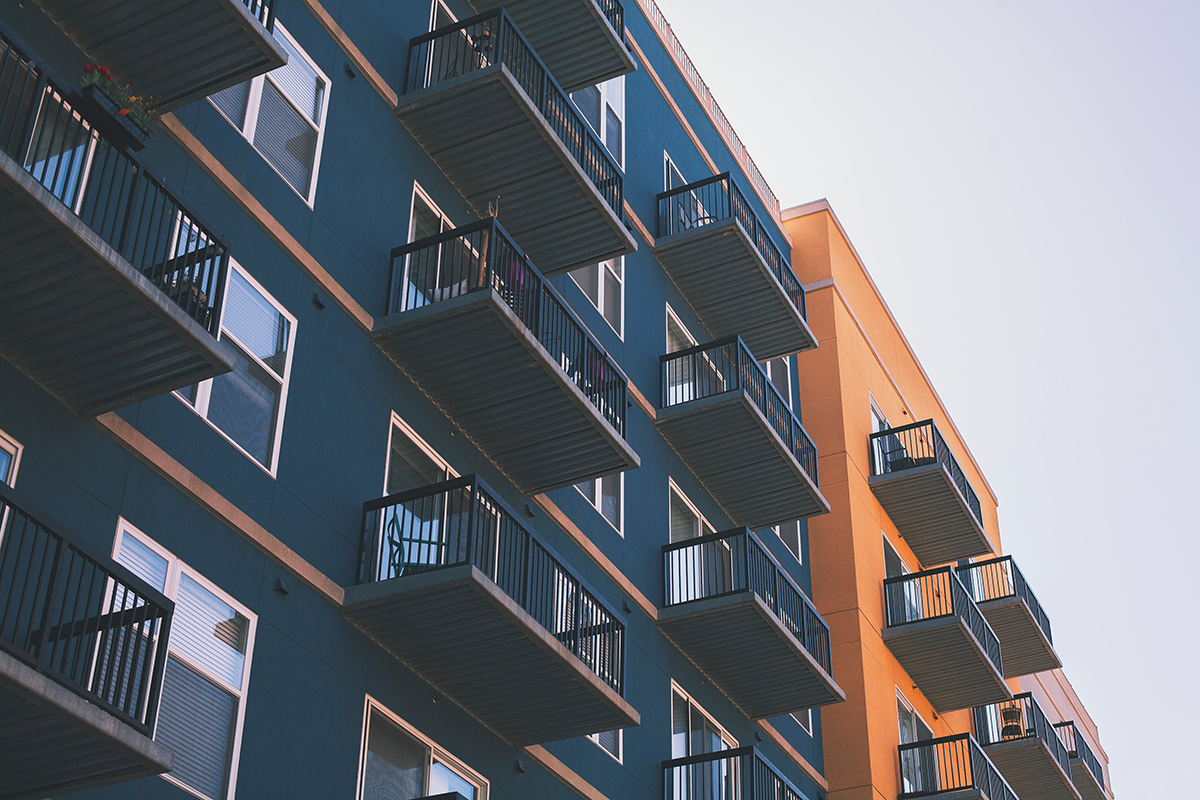Hillsborough County’s Housing Stability Program

Providing an alternative to eviction court so landlords and tenants have a plan to move forward
In 2021, Hillsborough County, specifically Hillsborough County Social Services and R3 and Hillsborough County’s Emergency Rental Assistance Program (ERAP) came together with Bay Area Legal Services to create the Hillsborough Housing Stability Program. The Program aims to provide landlords and tenants with an alternative to eviction court and to use resources more efficiently and collaboratively in order to help more landlords and tenants reach housing stability.
When designing the program, Bay Area Legal Services learned from Community Law Program’s Pinellas Eviction Diversion Program and other similar programs from across the Country. Calli Burnett, Attorney Supervisor, and Program Manager tells us a bit more about the Program.
Why is the Hillsborough County Housing Stability Program needed?
The traditional eviction process is generally not set up to help landlords and tenants solve problems or fix their relationships. In most cases, a tenant can be removed in as little as three weeks with the tenant not getting a day in court. Landlord-tenant issues can be solved in many different ways; the solution is not always kicking the tenant out. This program aims to give landlords and tenants help in finding the solution, whatever that solution may be, which is going to be right for them.
Another reason is that we are still dealing with the financial fallout of the COVID-19 pandemic and related shutdowns. Financially speaking, prior to the COVID-19 pandemic, most hard-working Americans did not have enough in savings to cover a single unexpected emergency expenditure. The COVID-19 pandemic and related shutdowns have jeopardized many families financially. Even now as the world opens back up, there are still many Americans behind in their housing payments. This program aims to give those tenants impacted by income loss during the COVID-19 pandemic extra support to get paid up and back on good terms with their landlord.
Lastly, there are some tenants who regularly and routinely find themselves in trouble with their landlord, maybe due to job instability, family needs, health needs, chronically low income, or being part of a specific group such as seniors or veterans. For those tenants, it is not enough just to solve the current issue, we want to help them obtain stability. This program aims to connect such tenants to social work services to try to help address the underlying issues impacting their housing and connect them to resources to help them move forward.
What does the Program do?
The Hillsborough County Housing Stability Program aims to provide low- and modest-income tenants and renters with holistic and comprehensive services, so that not only is their current need met, but they are also set up for success moving forward. One of the main aspects of this program is free, virtual mediation with a neutral mediator to help tenants and landlords solve their problems outside of Court.
What is mediation?
Mediation is a moderated conversation between two parties who want to try to settle a problem. The moderator is usually a third-party, or someone who has no personal interest in whether or not a problem is solved or how it is solved. There are different levels of trained mediators who moderate conversations.
In this program, we are relying on trained, volunteer mediators to moderate the conversations between landlords and tenants.
Mediation is a collaborative process where both sides explain their concerns and what they would want to see happen in a situation, then together with the moderator, the two sides try to come to an agreement or compromise on how they can settle the problem. This makes mediation a good alternative to court as it allows landlords and tenants to try to solve their issues without the hassle, cost, and uncertainties of the court process.
Because mediation requires honesty and compromise, it is best when both parties voluntarily agree to participate in mediation. For that reason, mediation in this program is completely voluntary, meaning both the landlord and the tenant must agree to participate in mediation, they will not be forced to do so.
Mediation is all about bringing both sides to the “same table” in order to increase dialogue to hopefully settle the problem. In today’s world, people can be brought to the “same table” in person or virtually through video conferencing platforms such as Zoom. This program will primarily rely on virtual mediation using Zoom.
The goal of mediation is to leave with an agreement, settlement, or compromise that both the landlord and tenant agree to, which will dictate the relationship moving forward. If mediation fails and the landlord and tenant cannot come to an agreement, either party is still free to pursue other options such as court.
Why is an alternative to Court needed?
As stated above, the Florida eviction process is not set up to facilitate compromise or settlement which could solve the landlord-tenant issue. Another reason a court alternative is needed is that in Florida, once an eviction is filed against a tenant or renter, it remains on their record forever, no matter the outcome. If the filing had no merit, if the tenant settles the issue with the landlord later, if the case is dismissed, or if the tenant wins the case, that eviction filing will stay on the tenant’s record forever.
National studies have shown that having just a single eviction on your record can lead to a domino effect of negative outcomes for tenants and renters moving forward. Having an eviction on your record can prevent you from qualifying for future housing. When tenants cannot qualify for quality housing they are forced to consider and apply for lower quality properties. In America, where you live can dictate a lot about a family’s outcomes. For example, lower quality properties come with an increased likelihood of condition issues such as mold, lead, and interrupted or inconsistent utilities which can lead to increased health issues for tenants. Lower quality properties are also usually located in less desirable neighborhoods, for example, neighborhoods with more crime, less access to businesses, lower-performing public schools, etc.
The harm of an eviction filing is real, and the negative impacts to tenants and renters can compound. Therefore, it is incredibly important for tenants to settle disputes with the landlord before an eviction case is ever filed. This program provides that safe space to discuss and solve disputes without an eviction ever being filed.
What kind of issues can mediation solve?
Mediation can be used to settle all kinds of different landlord-tenant issues. For instance, it might be used to come to a comprehensive plan of how to get a tenant paid up on back owed rent. Mediation could also be used to help the landlord and tenant come to an agreement on a move-out date or lease extension. Mediation could also be used to address other lease issues including alleged lease violations or getting a plan in place to get repairs to a unit completed, etc. Really any issue a landlord and tenant have, mediation could be one avenue toward settling the issue.
What else does the Program do?
Besides mediation, the program offers access to expedited rental assistance. We have found that often tenants do not realize what rental assistance resources are available to them and how to take full advantage of them. We have also found that landlords can be confused or frustrated by the rental assistance process, specifically over issues like how much assistance the tenant qualifies for, and how and when the landlord will receive payment.
To address these issues, this program provides tenants with a clear evaluation of what rental assistance programs they can qualify for and the likely total amount of support they may receive. Understanding this can allow tenants to make plans in advance to cover any amounts owed that rental assistance may not cover. This hopefully leads to landlords getting completely paid up and made whole, rather than receiving piece-meal partial payments.
The program also offers support throughout the rental assistance application process for all tenants who need rental assistance. We also specifically partnered with Community Law Program (CLP) out of Pinellas County to provide tenants who need hands-on assistance in their rental assistance application with a higher level of support. This is especially helpful for tenants who have an ability/disability barrier, technology barrier, language barrier, or any other barrier to successfully apply for rental assistance on their own.
If a tenant applies to Hillsborough County’s Emergency Rental Assistance Program (ERAP) R3, Bay Area Legal Services then works directly with R3 to expedite the review and approval of the rental assistance application under this program. This partnership with R3 allows for streamlined communication to all parties about the application decision, amount approved, and timeline for receipt of funds.
We also offer free comprehensive legal information and advice to tenants so they understand the requirements of their lease agreement and their responsibilities under Florida law. When needed, we also provide information about the eviction process and timeline in Florida and sometimes can provide legal representation for tenants facing eviction.
Lastly, for those tenants facing ongoing barriers to housing stability, the program can provide housing stability social work services from a social worker who can help eligible tenants seek employment, access housing resources, and look and apply for housing.
Who will this Program help?
Hillsborough county low- and modest-income tenants and renters whose household income is less than 80% of the median annual income for our area and meet other eligibility criteria. See the list below for the household income limits by the number of household members.
1 person – Up to $39,400
2 persons – Up to $45,000
3 persons – Up to $50,650
4 persons – Up to $56,250
5 persons – Up to $60,750
6 persons – Up to $65,250
7 persons – Up to $69,750
8 persons – Up to $74,250
9 persons – Up to $78,750
10 persons – Up to $83,250
We are extremely excited about this program and our partnership with Hillsborough County Social Services Emergency Rental Assistance Program R3, which services all of Hillsborough County, and Community Law Program (CLP). To learn more about this program, visit our website: bals.org/hchsp. To apply for services Hillsborough County tenants or renters should call 800-625-2257 and then enter extension 179.


